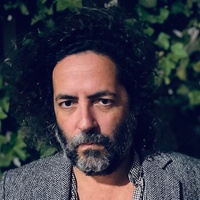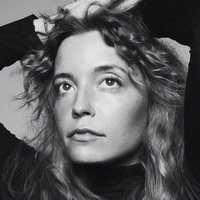On following your curiosity
Prelude
Jordan Kisner’s writing has appeared in n+1, The New York Times Magazine, The Atlantic, GQ, The Guardian, The American Scholar, California Sunday, The New Yorker, The New Republic, New York magazine, Pop-Up Magazine, and Pitchfork, among other publications. Her work has received a Pushcart Prize and was selected for The Best American Essays 2016. The author of Thin Places: Essays from In Between, she teaches creative writing at Columbia University.
Conversation
On following your curiosity
Writer Jordan Kisner discusses accepting creative difficulties, revising your writing schedule, and how following your natural curiosities can inspire your projects.
As told to Amanda Paige Inman, 1599 words.
Tags: Writing, Magic, Science, Education, Process, Inspiration, Mental health, Multi-tasking, Creative anxiety.
You wear a lot of different hats, could you talk about all of your roles and projects that you are working on?
I write books and essays, as well as profiles, features, and reviews for different magazines. Primarily I am a contributing writer for The New York Times Magazine and The Atlantic. I also write elsewhere when I have the opportunity to. I host and produce the podcasts Thresholds, which is an interview series with writers and artists. I also help out with the organization Tables of Contents and teach creative writing at Columbia University.
That’s a lot of hats.
I like having a lot of different things to do. I used to have a production company called The Bellwether. We produced work from all different disciplines, and I miss live events and curation. So in a way it feels like I have fewer hats than I used to. The podcast is newer to me.
Hearing you talk about all of your different roles reminds me of your essay in Thin Places about the clone tree [“A Theory of Immortality”] and how they all originate from the same thing. Often, when people have their hand in multiple projects, there is something in common. Do you feel like your projects are connected?
They all feel like natural extensions of my own curiosities. All of my projects stem from consistent interests: the collision between art, science, community, and the divine… or magic. I’m always looking at the ways that human beings try to connect with each other, or with some higher reality. Often, my writing life feels like different trees shooting up from that core curiosity and they can take various forms in terms of subjects, but they are all grounded in the same thing. When you teach creative writing, people bring in work that they care about, and your job is to ask them questions to help them refine what they are trying to do. I like to ask questions, and I like to get to the meat of what they care about.
I used to work as a teacher, so it’s interesting to hear you talk about the similarities between interviewing and teaching. This feels like a really generous way to think about being in a classroom, especially when it comes to the creative projects of others. Do you feel like you have that same sort of generosity and tenderness towards yourself as a writer?
I wish it were as easy to extend patience to myself as it is to do that for other writers, artists, and students that I talk to. For that reason, I find that teaching can be really helpful because I am often repeating encouragement to frustrated students that I really need to hear. It’s too easy to leave the classroom and beat my own writing up just to realize: that thing I said to a student really applies here, so I can cut myself some slack. It’s ok if it is not easy.
There is a certain personality type (of which I am one) that has a tendency to feel like if something is hard, if it feels messy, if it’s not coming out right the first, second, or third time that there is something fundamentally wrong with you or with the idea or with—I don’t know—every life choice you ever made [laughs]. I had to teach myself over time that it’s hard because it is hard. Writing is hard. Thinking is hard. Trying to clearly communicate a complex thought is hard. It’s not a bad sign if something feels hard to me. It is just part of the process, and so what I need to do is be patient with myself as much as I can and also try to stay focused on the problem that needs solving in front of me, instead of hand wringing over the big picture. It’s just a distraction from the thing that is hard, for example, I can’t figure out how to write an introduction for this essay that is not garbage. If I accept that it is okay that it is hard, it allows me to stay focused on solving the challenge.
When I am reading your essays, I feel as if I am exploring and discovering with you. I think a lot of that comes from your genuine curiosity about your subjects. I wonder how you choose them?
I feel like it is just the law of attraction. When I hear something interesting I get a crush on that idea. For example, before I wrote the essay that you referenced, I heard about Pando [the clone tree] and I instantly wanted to see the tree, I wanted to be near it and learn about it. I just got a creative crush on the tree. That’s also true about profiling people…not that I get a crush, just that I become curious about them. We all have people whose work sparks something in us. That is really what committing to a project means: I am going to devote time and mental real estate to thinking about this thing, person, or event. Choosing a subject is like choosing a friend, you want to spend months, possibly years of your life with this topic.
I like that. It’s a romantic view.
There is this Jesuit idea—and I am not Jesuit—that god tells you your calling through desire. Your attraction is actually direction towards what you are supposed to engage with. That idea rings true to me. Often, I am attracted to something and I don’t understand why. Like why I want to write about something—a tree, a festival, an orange. If I just follow that desire to spend time with that idea, something really fantastic usually occurs. There is actually something that happens that makes that project worthwhile. It’s not necessarily my job to know why in advance. It’s just worth taking it as a signal.
I wonder if there were specific early moments in your professional or personal life that felt like a desire or a calling towards writing, interviewing, teaching?
I always liked to write, but it was not something I seriously thought about until I finished school. A moment when I realized this could be a vocation for me happened in a documentary theater class in college, which I wrote about in the beginning of Thin Places [the essay “Attunement”]. Our job was to conduct interviews with people on either side of the cultural schism between conservative Christians and secular liberals. We then assisted playwrights in devising a piece of documentary theater based on our findings. I was an actor at the time and I was also a religion major, so I was like, “this is exactly what I am supposed to do.” But what felt revelatory about that process was interviewing. It was the first time I went out into the world with a tape recorder and asked people questions about what they care about. I was part of a team that had the responsibility to do something good with that time and trust that people offered us. I was on fire during this process. I was so excited and so moved. It felt life changing to engage with strangers and ideas in this way. I didn’t know what to do with that feeling. For a while I thought maybe I will be a documentary playwright. I wasn’t sure how to deploy it at all. I just fell in love with it.
You’re using yourself as a vehicle to portray someone else’s lived experience. Since you are wearing all of these hats: book author, essayist, teacher, interviewer, magazine writer, how do you guard your creative time? How do you avoid burnout?
I am fascinated by other writers’ schedules because I had a hard time creating one. I had horrible burnout last year and I felt like I had no more words in my brain. I didn’t have any boundaries, I was constantly working long hours and task shifting. I couldn’t get anything done for months. Which was terrible and terrifying and I am really glad to not feel that way anymore. I am currently in the exploratory process of trying to revise my workflow so I don’t get there again. I am tracking how much time—and in what order—I spend on different kinds of work, like book work, magazine work, and podcast work. I noticed that I do best when I start the day writing by hand in an undirected way. This is not a novel thing, it’s right out of The Artist’s Way by Julia Cameron. I also keep a complex multi-part to-do list organized by job. Because of the nature of my work, it is very easy to spend all of my time working on freelance and administrative tasks, and not dedicate time to writing my book. But I get really cranky if I don’t get to that type of writing. The goal is to set aside two-three hours a day dedicated to book writing.
Jordan Kisner recommends:
Constructing a Nervous System by Margo Jefferson (pre-order here)
Hydrating (I am usually dehydrated; working on this for myself)
Subscribing to at least one publication that’s purely for fun/aesthetics (for me, Apartamento)
Learning the names of the flowers and trees you see on your daily routes (I was inspired to do this by Aimee Nezhukumatathil)>
Getting a dog
- Name
- Jordan Kisner
- Vocation
- writer
Some Things
Pagination



